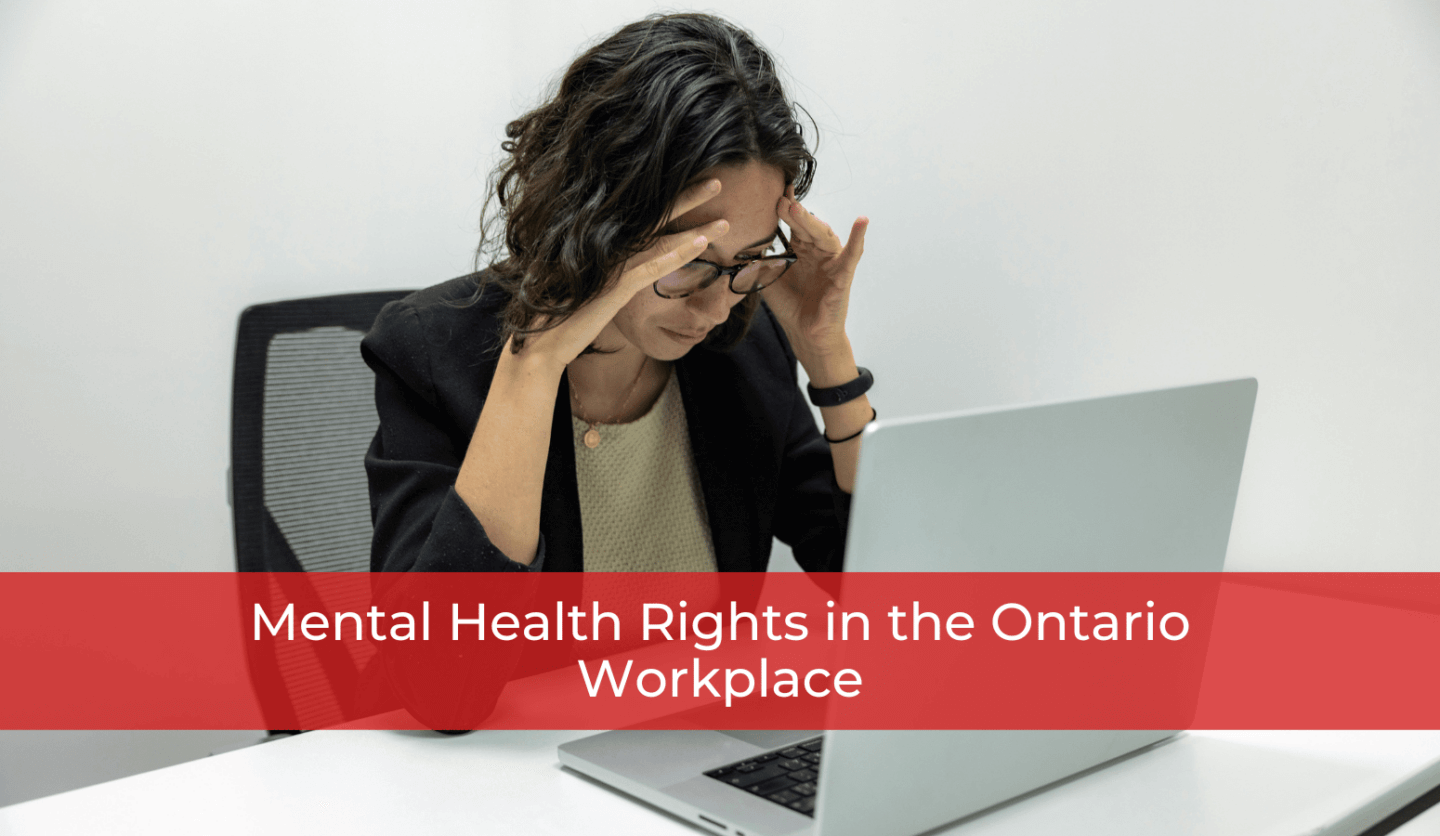
Mental Health Rights in the Ontario Workplace
In recent years, the legal landscape around mental health in the workplace has evolved significantly. As society becomes more aware of the importance of mental well-being, employers are increasingly required to recognize the need to accommodate employees who may be dealing with mental health challenges.
What is the Role of the Ontario Human Rights Code (OHRC) in Mental Health Accommodation?
In Ontario, the Ontario Human Rights Code (OHRC) is a key legislative framework that addresses mental health accommodation in the workplace. The OHRC prohibits discrimination based on a range of grounds, including disability, which encompasses mental health conditions. Employers in Ontario have a legal obligation to accommodate employees with disabilities (including mental health issues) up to the point of undue hardship. This means that employers are required to make reasonable adjustments to the work environment, policies, or their practices to facilitate the full participation and inclusion of employees with mental health conditions. In the same vein, employees are also required to cooperate with their employers’ efforts to obtain the information they require to make those accommodations (i.e. ascertain their functional abilities). If employees are not accommodated properly, employers’ forcing of employees to work without accommodation can be viewed as discriminatory.
Some of these reasonable accommodations may include:
- Flexible Work Hours: Offering flexibility in work hours can be a crucial accommodation for individuals dealing with mental health issues. This could involve adjusting when an employee starts and ends their workday, allowing for flexible breaks, or implementing compressed workweeks.
- Remote Work Options: In the age of the internet, remote work has become a viable option for many professions. Allowing employees to work from home, either permanently or on a temporary basis, can help employees manage their mental health needs.
- Modified Duties: Employers may need to consider modifying certain job responsibilities to better suit an employee’s mental health needs. This could involve redistributing tasks, reducing workload, or temporarily adjusting expectations.
How Can Employers Make Reasonable Adjustments for Mental Health Accommodation?
Employers play a crucial role in providing employees with a seamless return to the office, and one that takes into account the mental health needs of their workforce. Adhering to the OHRC, offering reasonable accommodations, and fostering a supportive workplace culture help to make a workplace as inclusive as possible. By staying informed about legal obligations and implementing thoughtful strategies, employers can navigate the return to the office and simultaneously prioritize the mental wellbeing of their employees.
How Can Whitten & Lublin Employment Lawyers Assist with Mental Health Needs in the Workplace?
Whether you are an employer or employee, Whitten & Lublin employment lawyers can provide you with the insight and guidance to navigate your rights and obligations concerning mental health needs in the workplace. If you would like more information about what Whitten & Lublin can do for your, please contact us online or by phone at 416 640-2667.



